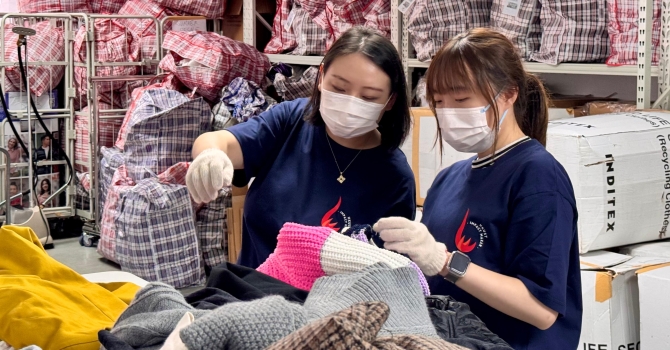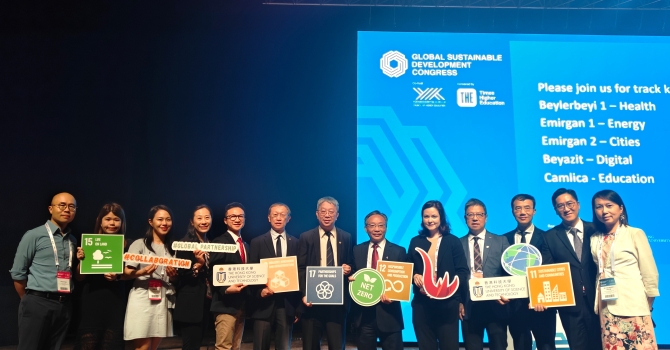HKUST Hosts Inspiring Documentary Screening on Oyster Reef Restoration and Staff Conservation Initiatives
In May HKUST collaborated with The Nature Conservancy to host an inspiring event focused on marine conservation. The screening of the documentary "City of Shells: Our Forgotten Oyster Reefs," directed by Mike Sakas, attracted over 100 attendees, including students and staff from diverse backgrounds.
The film explores the historical and economic significance of oyster reefs, emphasizing their crucial role in enhancing environmental resilience and sustainability in Hong Kong. HKUST proudly became the fourth university in the region to showcase this important documentary.
Following the screening, an engaging panel discussion featured experts such as Dr. Adam Janikowski, Director of the Explorers Club Hong Kong; Dr. Boze Hancock, Senior Marine Habitat Restoration Scientist and Chief Conservation Officer at The Nature Conservancy; and Ms. Marine Thomas, Associate Director of Conservation at The Nature Conservancy. The session was moderated by Prof. Cynthia Yau, Assistant Professor of Science Education at HKUST.
Panelists shared insights into the documentary's production and ongoing efforts to restore oyster reefs, while attendees posed thoughtful questions that deepened their understanding of marine conservation.
In addition to the documentary screening, approximately 40 HKUST staff from 20 different offices engaged in hands-on habitat management with The Nature Conservancy in Pak Nai, Yuen Long. Shellfish reefs, the most endangered marine habitats globally, have suffered an estimated 85% loss. Oysters naturally accumulate on small reefs along intertidal mudflats, providing essential feeding grounds for various species, from shorebirds to tiny crabs. However, centuries of human activity have significantly diminished these critical habitats in Hong Kong.
The shorelines of Pak Nai are cluttered with debris from abandoned oyster farms, including oyster shells and concrete poles, which degrade the habitats of endangered horseshoe crabs.
Our volunteering efforts focused on restoring Pak Nai's native habitats, including oyster reefs, seagrass beds, and mangroves, benefiting species like horseshoe crabs. Our Impact Makers learned about biodiversity through an eco-tour and actively contributed to conservation efforts by removing concrete poles and collecting shells to help reconfigure natural reefs on the mudflats.
We extend our heartfelt gratitude to everyone who participated in this enlightening event, highlighting the importance of collective action in protecting and restoring marine ecosystems for a sustainable future.



